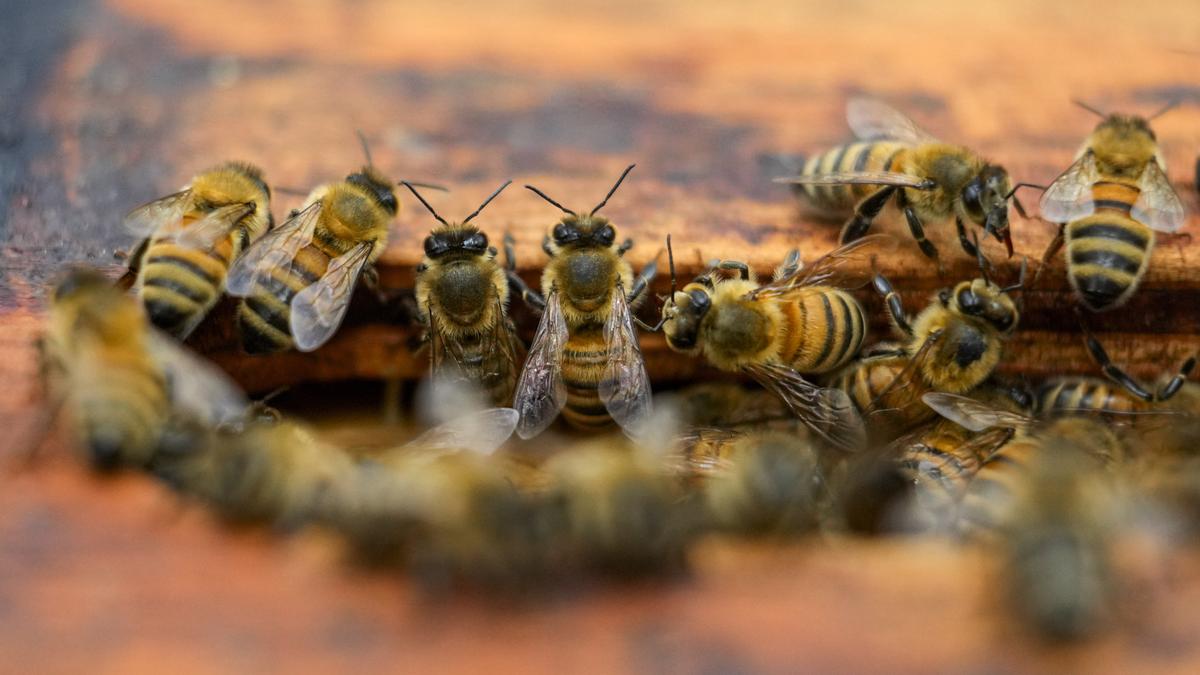Science
Researchers Identify Nine New Solitary Bee Species in Kerala

Researchers from the **Shadpada Entomology Research Lab** at **Christ College (Autonomous)** in **Irinjalakuda**, Kerala, have documented nine species of solitary bees, marking a significant contribution to the region’s biodiversity. This discovery, detailed in the **Journal of Insect Biodiversity and Systematics** (Vol. 11, Issue 3, March 2025), highlights the presence of the subfamily **Nomiinae** (Hymenoptera: Halictidae) in Kerala for the first time.
Solitary bees differ from social honeybees by living independently. Each female constructs and provisions her own nest, which may not produce honey but plays an essential role in ecosystems. “Solitary bees are vital pollinators. They play an equally important role as honeybees in sustaining ecosystems and boosting agricultural productivity,” stated **Dr. Bijoy C.**, Assistant Professor and Head of the Lab.
Among the newly identified species are **Austronomia capitata**, **Austronomia goniognatha**, **Austronomia ustula**, **Gnathonomia argenteobalteata**, **Hoplonomia incerta**, **Lipotriches torrida**, **Lipotriches exagens**, **Lipotriches minutula**, and **Lipotriches pulchriventris**. Notably, **Lipotriches torrida** has been found outside its original habitat for the first time, while **Gnathonomia argenteobalteata** reemerges after more than a century since its last recorded sighting in India.
Significance of the Findings
These findings place Kerala prominently on the global map regarding Nomiinae diversity, with the state now hosting **42 species** of this subfamily. This figure represents **50.6%** of the known Nomiinae fauna in India and **87.7%** in South India. The nesting activities of these bees contribute significantly to soil health by improving aeration, moisture retention, and fertility.
The research team, which included doctoral students **Athul Sankar C.**, **Vishnu A. V.**, and **Anju Sara Prakash**, collaborated closely with **Dr. Shaji E. M.**, Professor and Head of the Zoology Department at **K. K. T. M. Govt. College, Pullut**. Their work was supported by funding from the **Kerala State Council for Science, Technology, and Environment (KSCSTE)** and the **University Grants Commission (UGC)** under the Government of India.
As biodiversity continues to face threats from climate change and habitat loss, these discoveries underscore the importance of research in identifying and protecting lesser-known species that play crucial roles in our ecosystems. The findings not only enrich Kerala’s biodiversity records but also enhance understanding of pollinator dynamics, vital for agricultural sustainability and ecosystem health.
-

 World5 months ago
World5 months agoSBI Announces QIP Floor Price at ₹811.05 Per Share
-

 Lifestyle5 months ago
Lifestyle5 months agoCept Unveils ₹3.1 Crore Urban Mobility Plan for Sustainable Growth
-

 Science4 months ago
Science4 months agoNew Blood Group Discovered in South Indian Woman at Rotary Centre
-

 World5 months ago
World5 months agoTorrential Rains Cause Flash Flooding in New York and New Jersey
-

 Top Stories5 months ago
Top Stories5 months agoKonkani Cultural Organisation to Host Pearl Jubilee in Abu Dhabi
-

 Sports4 months ago
Sports4 months agoBroad Advocates for Bowling Change Ahead of Final Test Against India
-

 Science5 months ago
Science5 months agoNothing Headphone 1 Review: A Bold Contender in Audio Design
-

 Top Stories5 months ago
Top Stories5 months agoAir India Crash Investigation Highlights Boeing Fuel Switch Concerns
-

 Business5 months ago
Business5 months agoIndian Stock Market Rebounds: Sensex and Nifty Rise After Four-Day Decline
-

 Sports4 months ago
Sports4 months agoCristian Totti Retires at 19: Pressure of Fame Takes Toll
-

 Politics5 months ago
Politics5 months agoAbandoned Doberman Finds New Home After Journey to Prague
-

 Top Stories5 months ago
Top Stories5 months agoPatna Bank Manager Abhishek Varun Found Dead in Well









